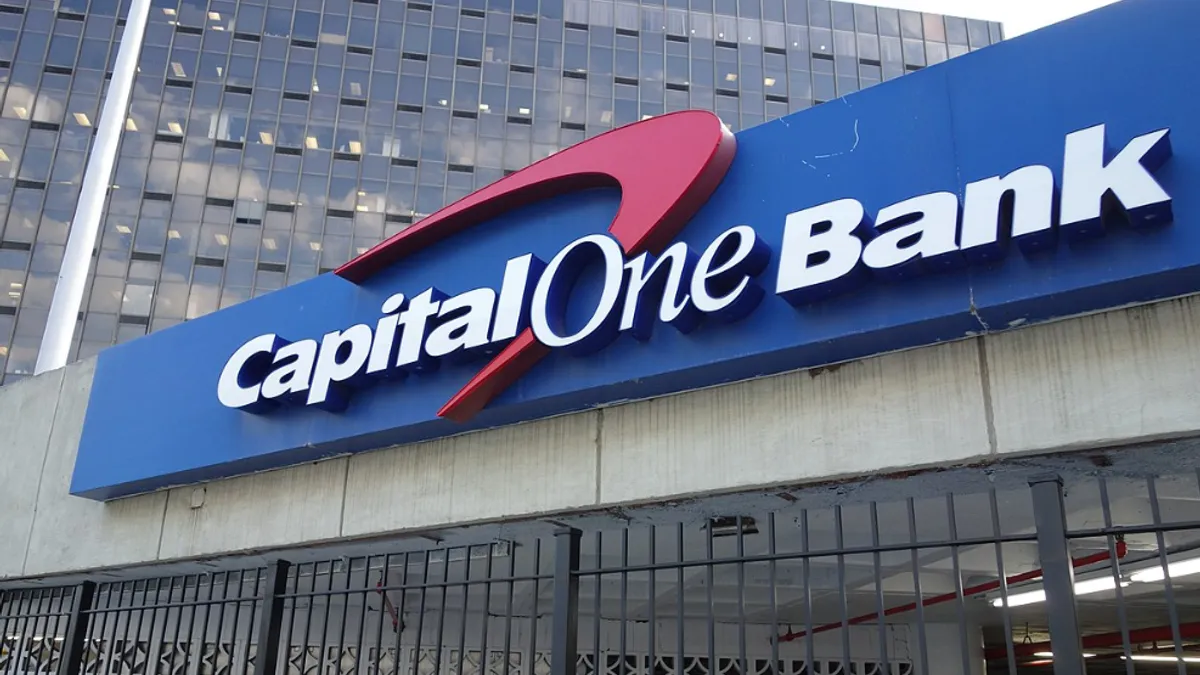Dive Brief:
- Capital One agreed to pay an additional $290 million to settle a Financial Crimes Enforcement Network (FinCEN) investigation after the bank admitted it willfully violated anti-money laundering requirements from 2008 to 2014, the regulator said Friday.
- The penalty concerns oversight of a business unit Capital One acquired when it bought New York-based North Fork Bank in 2006. The unit — since closed — served a small portfolio of check-cashing businesses, including some associated with the Genovese organized-crime family.
- FinCEN assessed the penalty at $390 million but gave Capital One credit for a $100 million fine the bank paid the Office of the Comptroller of the Currency (OCC) in 2018. The OCC issued an enforcement action in 2015 against the same business unit inside Capital One over anti-money laundering compliance, according to American Banker. The consent order was closed in 2019.
Dive Insight:
Capital One disclosed several years ago that FinCEN, the New York District Attorney's Office and the Justice Department were all investigating it over anti-money-laundering practices tied to former clients' check-cashing businesses.
But documents FinCEN released Friday contained an admission by Capital One it failed to file suspicious activity reports even after it learned in 2013 of potential criminal charges against specific customers.
Domenick Pucillo, the fourth-largest customer of Capital One's business unit that served check-cashers, was sentenced in 2019 to 10 years in prison after pleading guilty to conspiring to launder money in schemes that funneled illegal loan sharking and gambling proceeds through his Capital One accounts, FinCEN said.
Capital One allowed Pucillo's businesses to make more than 20,000 transactions worth roughly $160 million through 23 deposit accounts after it learned of potential charges against him, FinCEN said.
The bank also acknowledged errors involving currency transaction reports, which banks must file when customers make cash transactions over $10,000. Capital One said it failed to file such reports on roughly 50,000 transactions totaling more than $16 billion.
"Capital One willfully disregarded its obligations under the law in a high-risk business unit," Kenneth Blanco, FinCEN's director, said in a statement. "[The bank's] egregious failures allowed known criminals to use and abuse our nation's financial system unchecked."
Capital One shut down the commercial banking unit that served check-cashing businesses in 2014.
"Capital One takes its anti-money laundering obligations very seriously," a company spokesperson said in a statement. "The bank has invested heavily in the enhancement of its AML program over the past several years under new AML leadership, and has worked closely with regulators and law enforcement to ensure our compliance processes and protocols are robust and thorough."
Friday's settlement is the last remaining government inquiry tied to the check-cashing group, the bank said. Capital One had previously set aside money to fully cover the FinCEN penalty, which it has paid meaning the company will feel no further financial impact from the matter, a spokeswoman told The Wall Street Journal.











